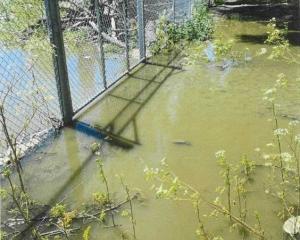
The new Dunedin hospital has evoked a strong sense of hope in the people of Otepoti since its inception.
Originally built in 1865, unfortunately it has been deemed unsuitable for its purpose especially in more recent years. Worse still, the asbestos and leaky roofs are just some of the factors that are negatively impacting the healthcare of our vulnerable patients.
It is not surprising to see the overwhelming public support when David Clark announced the rebuild plan in 2018.
It has been a challenging process since the proposal with repeated delays and redesigns. The initially planned 444 beds were subsequently trimmed to 421 beds which represent a minimal increase on the existing 361 beds facility.
At current bed levels, our hospital struggles to meet the demands placed upon its service, evidenced by the current unacceptable emergency department and elective surgery wait times.
To be clear, these wait times are not the making of the hard-working clinical and non-clinical staff working tirelessly across the hospital services, but reflective of chronic under investment in our health system.
Any attempts to reapportion existing suboptimal plan/budget would only add fuel to the health care crisis.
The protracted construction timeframe also means the so-called state-of-art design may not even be fit for purpose by the time the new hospital has been commissioned. Any attempts to cost save now will only lead to long-term financial burden dwarfing the proposed saving.
It is also extremely perplexing to see the limited consultation with relevant front-line clinicians. One example of this was the proposed reduction of mental health beds for older persons and its subsequent reversal. The delays and increased cost because of such are not only avoidable but extremely wasteful in their own right.
Dunedin, being home to New Zealand’s first and largest medical school, needs to be seen as a centre for medical excellence both domestically and internationally, to ensure it continues to attract high calibre academics to help mould and guide the next generation of doctors, and to continue to push medical innovation in New Zealand.
A substandard and inadequate hospital will fail to attract the people needed to ensure the University of Otago, and indeed New Zealand, remains a respectable and desirable place for the training of doctors and the advancement of medical sciences.
One does not need a crystal ball to foresee the ongoing limitations even after the opening of the new hospital. The proposed hospital build with multiple revisions for the purpose of cost saving does little to address these issues. Limiting costs is only going to shift costs (both in monetary and social impact terms) further down the road.
As clinicians responsible for the day-to-day operations of the hospital system, we implore the relevant decision makers to reconsider their approach to the construction of the new Dunedin hospital and place the needs (both current and future) of the public ahead of any limited and short-sighted cost-saving measures.
As the campaign concisely summarised: "They save, we pay".
The clinicians will have to pay for the short-term saving working with suboptimal resources. The patient will have to pay for the short-term saving receiving suboptimal health care. The country will have to pay for the short-term saving suffering ongoing health care crisis.
We still have time to avoid these. But time is running out.
— The Resident Doctors Association represents resident medical officers, general practitioners and trainee interns.










